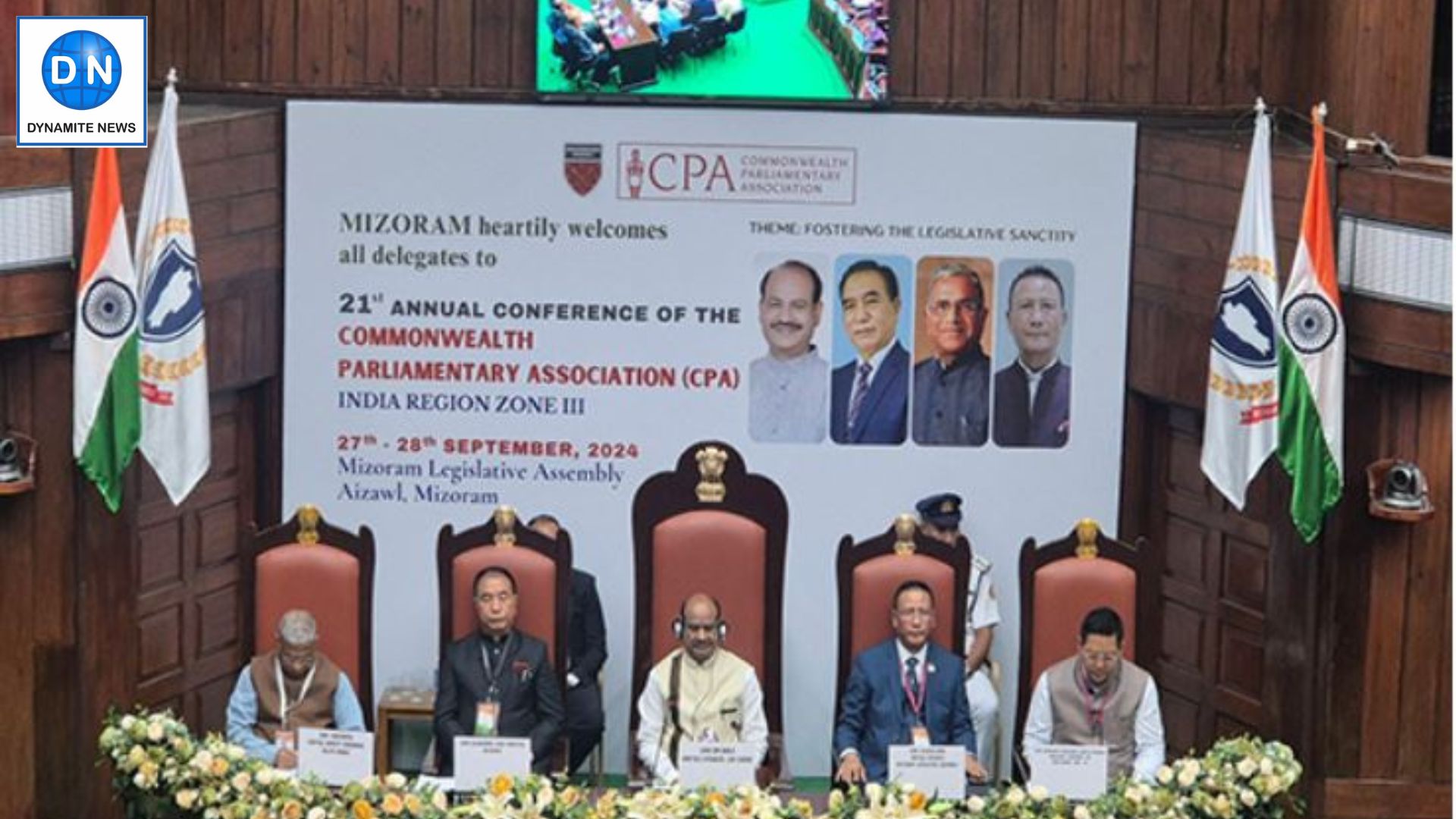
Mizoram: The 21st CPA Zone III Conference inaugurated by Lok Sabha Speaker Om Birla at Mizoram Legislative Assembly Complex, Aizawl, on Friday.
Deputy Chairman of Rajya Sabha Harivansh, Chief Minister of Mizoram Lalduhoma, Speaker of Mizoram Legislative Assembly Lalbiakzama, Speaker of Nagaland Legislative Assembly Sharingain Longkumer, Members of Mizoram Legislative Assembly and nine Presiding Officers of the Legislatures of the North-Eastern States participating in the inaugural session of the Conference.
The Executive Committee of CPA
The Executive Committee of CPA (Zone III) also held a meeting yesterday before the conference.
The theme of the Conference is "Fostering the Legislative Sanctity." In addition, the sub themes are also being discussed during the Conference, i.e. Inclusion of the Northeast Region in the India-ASEAN Vision for Trade and Cooperation and Merging the Ministry of DONER with NEC for better strategic planning and coordination of various projects in the region.
It is notable that the Commonwealth Parliamentary Association (CPA) is an international community of Commonwealth Parliaments and Legislatures working together to strengthen the Commonwealth's commitment to high standards of democratic governance and the parliamentary system.
The CPA is one of the oldest organizations in the Commonwealth. Established in 1911, the federation is made up of more than 180 legislatures divided between nine geographical regions of the 54 Commonwealth countries.
Issues of mutual interest
It provides an opportunity for MPs and parliamentary staff to collaborate on issues of mutual interest and share good practices.
Also Read |
Sumitra Mahajan: Unruly behavior will not be accepted by any MP
CPA India Region was established in 2004 as one of nine regions from the erstwhile CPA Asia Region. It has 31 Member Branches.
30 State/Union Territory Legislatures including the Parliament of India. 10 CPA India Region Conferences have been organized, so far.
It is also pertinent to note that 20 Regional Conferences have been organized in the North Eastern States including the programmess organized by the North Eastern Region Commonwealth Parliamentary Association (NERCPA) and CPA Zone-III.
CPA North East Region
CPA North East Region has been organizing this regional Conference regularly since 1997. Conferences have been organized regularly aimed at strengthening democracy in the North-Eastern region. This reflects the commitment and faith of the common people in the democratic institutions and processes of the nation.
Every possible effort is now being made towards a prosperous and progressive North-East.
The North Eastern Council was formed by an Act of Parliament in 1971 for the socio-economic development of the region, with the Chief Ministers of all eight states of the region as members.
Keeping in mind the development of the North Eastern States, the Government of India established the Ministry of Development of North Eastern Region (DONER) in 2001.
Also Read |
Om Birla likely to be next Lok Sabha Speaker
Inclusive development of the North Eastern
For the inclusive development of the North Eastern region, the Ministry of External Affairs adopted the Look East Policy in 1992, which took the form of Act East Policy in 2014 under the leadership of Prime Minister Narendra Modi.
Central expenditure in this region has increased rapidly in the last few years. The North-Eastern region has been given priority under many Central schemes. Considering the geo-strategic importance of the North Eastern region, this region will soon emerge as a strategic nodal trade center which will also help in generating employment for the youth of the region.
The northeastern region of India is not only seen as one of the most diverse regions of Asia, but is also seen as a land of opportunities. With immense potential in natural resources, water resources, agriculture and horticulture, the North-East region is rapidly developing as a center for tourism, medicine, arts and handicrafts.
Efforts are also underway to increase the capacity of various economic sectors, promote MSME, strengthen telecommunication, power system, organic farming etc. There is immense potential for developing tourism in this area and the Government of India is working very actively in this direction. (with Agency inputs)







